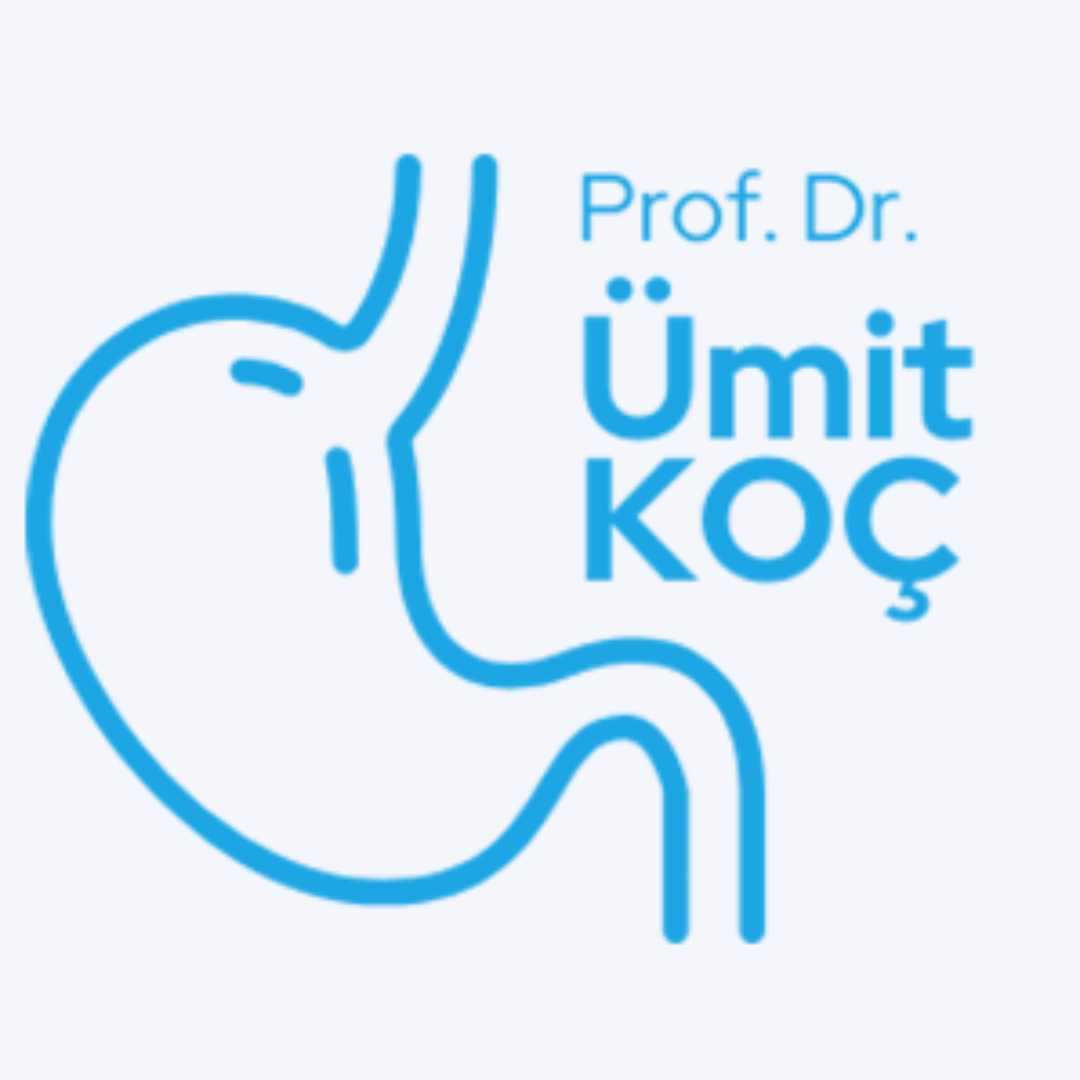Expert Bariatric Surgery Turkey: Affordable Packages

Bariatric surgery has become a leading option for individuals seeking significant and sustainable weight loss, especially for those who haven't found success with traditional methods. Turkey has emerged as a prominent destination for medical tourism, particularly for bariatric procedures, due to its combination of high-quality healthcare, experienced surgeons, and surprisingly affordable all-inclusive packages. These packages aim to provide a seamless experience for international patients, covering everything from the medical procedure itself to accommodation and post-operative care. This blog post will delve into the various aspects of bariatric surgery in Turkey, answering key questions to help you make an informed decision.
Do Turkish hospitals offer all-inclusive bariatric surgery packages?
"Yes, many Turkish hospitals and medical tourism agencies offer comprehensive all-inclusive bariatric surgery packages that cover the procedure, hospital stay, pre-operative tests, post-operative care, accommodation, and transfers."
Turkey has a well-developed medical tourism infrastructure, and a significant part of its appeal lies in the convenience and cost-effectiveness of its all-inclusive packages for bariatric surgery. These packages are designed to simplify the entire process for international patients, ensuring that most aspects of their medical journey are taken care of. This includes the core surgical procedure, the necessary medical evaluations before surgery, and crucial follow-up care.
Beyond the medical aspects, these packages often extend to logistics, such as airport transfers and comfortable hotel accommodation. This integrated approach reduces the stress of organizing a medical trip abroad, allowing patients to focus on their health and recovery. The transparency of these packages, with clearly outlined inclusions, helps patients budget effectively and avoid unexpected costs.
What is typically included in an "all-inclusive" bariatric surgery package in Turkey?
"An all-inclusive bariatric surgery package in Turkey generally includes the surgical procedure, pre-operative consultations and tests, hospital stay, post-operative care (including medications and follow-up appointments), hotel accommodation, and airport and local transfers."
These packages are designed to offer a complete solution for patients traveling for bariatric surgery. Here’s a detailed breakdown of what you can typically expect:
- Pre-operative Consultations and Tests: Before the surgery, you'll undergo a thorough medical evaluation. This usually includes consultations with the bariatric surgeon, a dietitian, an anesthesiologist, and sometimes a psychologist. Blood tests, ECG, chest X-rays, and endoscopy are also standard to ensure you are a suitable candidate for surgery.
- The Surgical Procedure: This covers the surgeon's fees, anesthesia, and operating room charges for the chosen bariatric procedure (e.g., gastric sleeve, gastric bypass).
- Hospital Stay: Post-surgery, you'll typically spend 2-4 nights in the hospital for observation and initial recovery. This is usually included in the package, often in a private room, with meals for the patient and sometimes a companion.
- Post-operative Care and Medications: This is a crucial component, including necessary medications during your hospital stay and often a supply for your initial recovery at the hotel. It also covers initial follow-up appointments with your surgeon and sometimes a dietitian for guidance on your new diet. Some packages offer extended remote follow-up.
- Accommodation: Many packages include a stay in a 4 or 5-star hotel for a specified number of nights (e.g., 5-7 nights) before and after your hospital stay, providing a comfortable environment for rest and recovery.
- Transfers: Seamless transportation is a key feature. This typically involves private transfers from the airport to your hotel, to the hospital for appointments and surgery, and back to the airport for your departure.
- Interpreter Services: For international patients, language can be a barrier. Many all-inclusive packages provide a dedicated interpreter or multilingual staff to facilitate communication with medical professionals.
What is the average cost of bariatric surgery in Turkey with an all-inclusive package?
"The average cost of all-inclusive bariatric surgery packages in Turkey typically ranges from $3,000 to $7,000, significantly lower than in many Western countries, depending on the type of procedure and the clinic."
The affordability of bariatric surgery in Turkey is a major draw for international patients. While prices vary based on the specific procedure (gastric sleeve vs. gastric bypass), the hospital's reputation, and the extent of services included in the package, Turkey offers a compelling cost advantage. For instance, a gastric sleeve might be on the lower end of this range, while a more complex gastric bypass or revisional surgery could be higher.
It's important to compare what is explicitly included in each package to get a true sense of value. While the headline price is attractive, ensure it covers all the necessary medical and logistical aspects for a smooth experience. Even with travel expenses, the overall cost often remains considerably less than what patients would pay in countries like the USA, UK, or Canada, where similar procedures can range from $10,000 to $30,000 or more.
What types of bariatric surgery are available in Turkey?
"Turkish hospitals offer a wide range of bariatric surgery options, including Gastric Sleeve (Sleeve Gastrectomy), Gastric Bypass (Roux-en-Y), Mini Gastric Bypass, Gastric Balloon, and sometimes revisional bariatric surgery."
Turkey's bariatric surgeons are proficient in performing various types of weight-loss procedures, catering to different patient needs and medical conditions. The most common procedures include:
- Gastric Sleeve (Sleeve Gastrectomy): This is the most frequently performed bariatric surgery. It involves removing a large portion of the stomach, leaving a smaller, banana-shaped "sleeve." This reduces the amount of food the stomach can hold and also impacts hunger-regulating hormones, leading to significant weight loss.
- Gastric Bypass (Roux-en-Y): This procedure involves creating a small stomach pouch and bypassing a section of the small intestine. It works by restricting food intake and reducing nutrient absorption.
- Mini Gastric Bypass: A simpler and less invasive variation of the traditional gastric bypass, often with similar weight loss outcomes.
- Gastric Balloon: This is a non-surgical, temporary procedure where a deflated balloon is inserted into the stomach and then inflated, taking up space and promoting a feeling of fullness. It's often suitable for patients with a lower BMI or those seeking a less invasive option.
- Duodenal Switch (Biliopancreatic Diversion with Duodenal Switch - BPD/DS): A more complex procedure that combines elements of gastric sleeve and intestinal bypass, typically reserved for individuals with extreme obesity.
- Revisional Bariatric Surgery: For patients who have had previous bariatric surgery but experienced insufficient weight loss or complications, Turkish hospitals also offer revisional procedures to address these issues.
How long should I plan to stay in Turkey for bariatric surgery?
"Patients typically need to plan for a stay of 7 to 10 days in Turkey for bariatric surgery, which includes the hospital stay and initial recovery at a hotel for follow-up appointments."
The duration of your stay is crucial for proper initial recovery and post-operative monitoring. While the hospital stay itself is usually 2-4 days, remaining in Turkey for an additional few days allows for:
- Initial Healing: Time for your body to adjust to the surgical changes and for any immediate post-operative discomfort to subside.
- Follow-up Appointments: Essential check-ups with your surgeon to ensure proper healing, address any concerns, and receive personalized dietary and lifestyle guidance.
- Monitoring for Complications: Although rare, staying in Turkey for this period allows medical staff to promptly address any unforeseen complications.
This recommended timeframe ensures that patients are stable and have received adequate initial care before traveling back home.
Is bariatric surgery in Turkey safe?
"Yes, bariatric surgery in Turkey is generally considered safe, with many hospitals accredited by international organizations like JCI and staffed by highly experienced bariatric surgeons using advanced techniques."
Turkey has invested significantly in its healthcare infrastructure, with many hospitals meeting rigorous international standards. Key factors contributing to the safety of bariatric surgery in Turkey include:
- International Accreditations: Numerous hospitals in Turkey are accredited by organizations such as the Joint Commission International (JCI), which signifies adherence to strict quality and patient safety standards.
- Experienced Surgeons: Turkish bariatric surgeons often have extensive training and experience, with many having studied or practiced internationally. They perform a high volume of bariatric procedures, contributing to their expertise.
- Advanced Facilities and Technology: Hospitals are equipped with modern operating rooms, advanced laparoscopic and robotic surgical technologies, and comprehensive diagnostic equipment, which minimize invasiveness and improve outcomes.
- Multidisciplinary Approach: Reputable clinics often employ a team approach, involving surgeons, dietitians, psychologists, and nurses, to provide holistic care before, during, and after the surgery.
- Low Complication Rates: While any surgery carries risks, serious complications in bariatric surgery in Turkey are rare, comparable to international standards, often due to the expertise and modern techniques employed.
How do I choose the right bariatric surgeon and hospital in Turkey?
"To choose the right bariatric surgeon and hospital in Turkey, research their qualifications and experience, check for international accreditations like JCI, read patient reviews, and inquire about the comprehensiveness of their all-inclusive packages and post-operative support."
Selecting the right medical provider is paramount for a successful bariatric surgery journey. Consider the following:
- Surgeon's Qualifications and Experience: Look for surgeons who are board-certified, have specialized training in bariatric surgery, and a proven track record of successful outcomes. Inquire about the number of bariatric surgeries they perform annually.
- Hospital Accreditations: Prioritize hospitals with international accreditations such as JCI (Joint Commission International) or ISO certifications, as these indicate adherence to global standards of care.
- Patient Reviews and Testimonials: Online reviews on platforms like Google, medical tourism forums, and the clinic's website can offer insights into other patients' experiences.
- Technology and Facilities: Ensure the hospital uses modern equipment and offers minimally invasive techniques like laparoscopy, which generally lead to faster recovery times.
- Package Inclusions and Transparency: Fully understand what is covered in the all-inclusive package to avoid hidden costs. A reputable provider will be transparent about all fees.
- Post-operative Care and Communication: Evaluate the clinic's plan for post-operative support, including follow-up appointments, dietary guidance, and how they handle communication after you return home.
- Language Support: Confirm that interpreters or multilingual staff are available to ensure clear communication throughout your stay.
What is the recovery process like after bariatric surgery in Turkey?
"The initial recovery after bariatric surgery in Turkey involves a liquid diet for the first few weeks, gradually progressing to pureed and soft foods, with most patients able to return to light activities within 2-4 weeks and full recovery taking several months."
The recovery journey is a phased process, requiring strict adherence to dietary and lifestyle guidelines to ensure optimal results and minimize complications.
- Hospital Stay (2-4 days): Immediately after surgery, you'll be closely monitored. You'll start with small sips of clear liquids. Pain management will be provided, and you'll be encouraged to take short walks to aid circulation.
- First 2 Weeks (Liquid Diet): Upon discharge, you will strictly follow a liquid diet, primarily water, broths, and protein shakes, to allow your stomach to heal.
- Weeks 3-4 (Pureed Foods): Gradually, you'll transition to pureed foods, focusing on protein-rich options.
- Weeks 5-8 (Soft Foods): Soft, easily digestible foods are introduced, such as mashed vegetables and finely ground meats.
- Beyond 8 Weeks (Gradual Return to Solid Foods): You will slowly reintroduce solid foods, emphasizing small portions, slow eating, and thorough chewing. Lifelong dietary changes and vitamin supplementation are critical for long-term success.
Light physical activity, such as short walks, is encouraged early on, but strenuous exercise is usually restricted for several weeks. Regular follow-up appointments, often virtual after you return home, are vital to monitor your progress, address any nutritional deficiencies, and provide ongoing support.
What are the visa requirements for medical tourism to Turkey?
"For medical tourism to Turkey, most international patients will need a medical visa or an e-visa, depending on their nationality. This typically requires a letter from the Turkish hospital confirming treatment, a valid passport, proof of financial means, and travel insurance."
Turkey has a relatively straightforward visa process for medical tourists.
Check Your Nationality: First, determine if your country requires a visa for Turkey. Many countries are eligible for an e-visa, which can be obtained online quickly.
Medical Visa: If an e-visa is not applicable or for longer stays, a traditional medical visa may be required. This generally involves applying at a Turkish embassy or consulate in your home country.
Required Documents: Common documents include:
- A valid passport with at least six months' validity.
- A formal invitation or confirmation letter from the Turkish hospital detailing your medical treatment, expected duration, and appointment dates.
- Completed visa application form.
- Passport-sized photographs.
- Proof of accommodation (hotel bookings).
- Flight itinerary.
- Proof of sufficient funds to cover your medical expenses and stay (e.g., bank statements, credit card statements).
- Comprehensive travel and health insurance that covers medical emergencies during your stay in Turkey.
It is advisable to apply for your visa well in advance of your planned travel date, as processing times can vary.
What kind of aftercare and follow-up support can I expect after bariatric surgery in Turkey?
"Aftercare and follow-up support for bariatric surgery in Turkey typically include dietary guidance from a nutritionist, regular virtual check-ups with the surgeon, and recommendations for vitamin and mineral supplementation, often extending for several months to a year post-surgery."
Long-term success after bariatric surgery heavily relies on consistent aftercare and adherence to new lifestyle habits. Turkish clinics offering all-inclusive packages understand this and provide comprehensive support:
- Dietary Counseling: A dedicated dietitian will guide you through the different stages of your post-operative diet, from liquids to solid foods, and help you create a sustainable eating plan. This often includes personalized meal plans and advice on portion control.
- Nutritional Supplementation: Bariatric surgery can affect nutrient absorption, so you will receive instructions on necessary vitamin and mineral supplements (e.g., multivitamins, B12, iron, calcium) to prevent deficiencies.
- Regular Follow-up Appointments: While initial follow-ups are in Turkey, many clinics offer remote or virtual consultations with your surgeon and dietitian for several months to a year after you return home. These check-ups monitor your weight loss progress, address any concerns, and adjust your plan as needed.
- Lifestyle Guidance: You'll receive advice on integrating physical activity into your routine and managing psychological aspects related to weight loss and body image.
- Support Groups: Some clinics may offer access to online support groups or resources to connect with other bariatric patients.
This ongoing support system is vital for achieving sustainable weight loss and maintaining overall health in the long term.
Explore PlacidWay for comprehensive solutions related to medical tourism and healthcare services worldwide.




.png)




.png)
.png)
.png)
-(1).png)






Share this listing